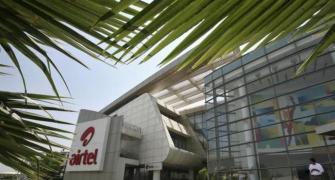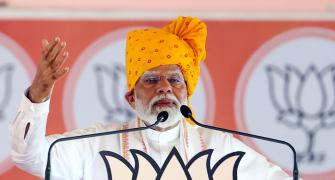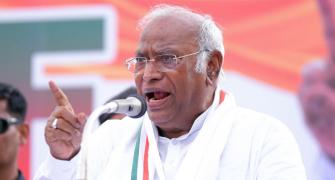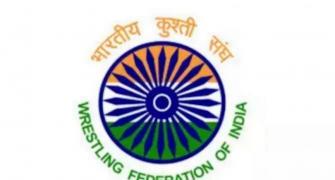Share rises further to 73 per cent from 66 per cent last year; Some overseas i-banks seen scaling down operations

Domestic investment banks (i-banks) have edged out their foreign peers in capturing a significant chunk of the booming initial public offering (IPO) market in the past two years.
In terms of deal size, domestic i-banks had cornered a 66 per cent market share in calendar year 2016. This year, their share in the IPO pie has risen to 73 per cent, data collated from Prime Database shows.
The dominance of domestic i-banks comes amid a string of large-sized offerings hitting the market. From January 2016 to now, 19 offerings of over Rs 1,000 crore (Rs 10 billion) have hit the market, of which four were above Rs 5,000 crore (Rs 50 bilion).
In 2015, there were just three offerings with an issue size over Rs 1,000 crore.
Until a few years ago, foreign i-banks were considered indispensable in handling large issues of over Rs 1,000 crore, owing to their better reach and Marketing prowess to overseas investors. That’s no longer the case.
For one, Indian companies taking the IPO route are now much more confident about the execution skills of domestic i-banks and their capability to attract both domestic and overseas money.
Second, domestic banks have ramped up their operations significantly in the past few years even as several foreign investment banks, especially the European ones, have scaled down.
Third, the record money flowing into domestic mutual funds has found its way into IPOs, reducing the dependence on overseas anchor investors.
According to V Jayasankar, senior executive director and head of equity capital markets, Kotak Investment Banking, the commitment of several foreign i-banks to the India business has dwindled over the past few years.
“Some of them have shrunk to just 12-15 employees and it is not possible to cater to multiple clients at the same time.
Domestic i-banks have grown rapidly and quite a few have developed better marketing, research and distribution teams than their foreign counterparts.”
“Anywhere between 70 per cent and 80 per cent of an offering today is effectively a domestic book that includes mutual funds, insurers, high net worth individuals and retail investors.
Domestic i-banks are best suited to cater to this set as they understand the macro and micro story better than the overseas i-banks,” said Dharmesh Mehta, managing director & CEO, Axis Capital.
According to him, Axis Capital has handled about 8-10 IPOs in the past month, something no foreign i-bank would be able to replicate considering the lack of bandwidth and resources.
“In the last few years, the domestic banks have scaled up their capabilities in terms of marketing an issue globally.
Also, the single-market focus is helping domestic players, particularly as local institutions are emerging as big investors in recent IPOs,” added Ajay Saraf, executive director at ICICI Securities.
“In larger issues, the ability to market and connect to overseas investors is critical. And domestic i-banks have proven they are no laggards in this respect,” said Pranav Haldea, managing director, Prime Database.
To be sure, large offerings still feature two-three overseas bankers owing to their ability to market the offering among marquee international investors.
The likes of Citi, Credit Suisse, Bank of America Merrill Lynch and to some extent Morgan Stanley, Citic CLSA and Nomura have been active this year, said sources.
The recently concluded GIC offering had Citi, Deutsche and HSBC as lead bankers. SBI Life Insurance had BNP Paribas, Citi and Deutsche, while ICICI Lombard General Insurance had hired BofA Merrill Lynch and Citic CLSA.
"It’s the choice of individual bankers; as far as we are concerned, we have become a lot selective about the deals we sign up for,” said a foreign banker, on condition of anonymity.
Fundraising through the IPO route has hit a record high in 2017, with 28 companies collectively mopping up Rs 44,853 crore (Rs 448.53 billion).
This surpasses the previous high of CY10 when as many as 64 companies had raised Rs 37,535 crore (Rs 375.35 billion) via IPOs. Demand for IPOs has been high in 2017 with a dozen companies seeing an overall subscription of over 30 times.
Photograph: Reuters










